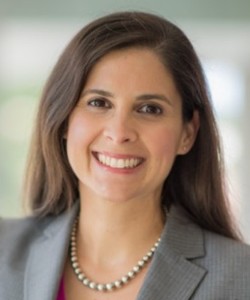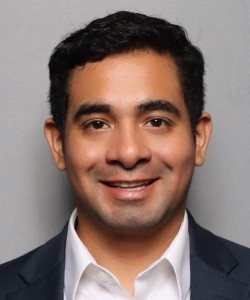Hispanic Heritage Month
Background
National Hispanic Heritage Month is annually observed from September 15 to October 15 in the United States and recognizes the contributions and influence of Hispanic and Latino/a/x Americans to the nation’s achievements, culture, and history.
For historical background, Hispanic Week was established in 1968 by legislation sponsored by Rep. Edward R. Roybal of Los Angeles and was signed into law by President Lyndon Johnson. In 1988, the commemorative week was expanded to a month (September 15 to October 15) by legislation sponsored by Rep. Esteban Edward Torres (D-CA), amended by Senator Paul Simon, and signed into law by President Ronald Reagan. September 15 was chosen as the starting point for the commemoration because it is the anniversary of the Cry of Dolores (early morning, September 16,1810), which marked the start of the Mexican War of Independence and thus resulted, in 1821, of the independence for the New Spain Colony (now Mexico and the Central American nations of Guatemala, El Salvador, Costa Rica, Honduras, and Nicaragua.)
The Diversity SIG is happy to highlight and learn the stories of some of our Hispanic and Latino/a/x colleagues during this month.
Interview with Jennifer E. Dominguez, MD, MHS
Can you tell us your name, where you work and your current leadership roles at your home institution, and other societies?
My name is Jennifer Estrella Dominguez, MD, MHS. I am an associate professor of anesthesiology at Duke University School of Medicine in Durham, NC, where I have been on faculty for 12 years. I serve as the associate vice chair for Equity, Diversity and Inclusion for the Department of Anesthesiology, and the program director of the obstetric anesthesia fellowship. I am an active member of the Society for Obstetric Anesthesia and Perinatology where I serve on the Diversity and Inclusion committee, and the Society for Anesthesia and Sleep Medicine.
Who has served as an inspiration in your life?
My family. My daughters and my husband give me encouragement and motivation to try to be my best self every day. My extended family has been a source of love and support throughout my life, and I am so grateful for them.
What challenges have you faced on your journey so far as a physician and anesthesiologist? How did you overcome them?
I think navigating academic medicine as a woman and a Latina has been a challenge, although I have not walked in anyone else’s shoes. So, in a way, I don’t know any other way. I have a sense of having to redefine some of the roles I’ve been in because it hasn’t been done by someone like me before. In our society, identity is tightly associated with who holds power, who is seen as a leader—and the spaces are shaped by the people who created them—mostly white men. So, my entire career—I’ve had a sense that the space I’m in doesn’t feel entirely comfortable—and I’ve had to learn to be OK with that—to maintain confidence and faith in myself despite that discomfort and to gradually redefine those spaces.
How do you celebrate Hispanic Heritage Month? Why do you think it’s important to recognize and celebrate Hispanic Heritage Month?
I think it is important to celebrate all the cultures and identities that contribute to the diversity and richness of our society here in the United States, including the contributions of Latinos, so that we can understand each other better and be more compassionate neighbors to one another. We do not have any specific ways that we celebrate Hispanic Heritage Month in my family, but we always try to teach our children about their cultural heritage and support local charities that aid refugees.
Can you tell us about some of your research, particularly projects that address diversity or disparities in health care?
We’re recruiting for a study to better understand beliefs and knowledge about neuraxial labor analgesia among nurse anesthetists, anesthesia trainees, and labor and delivery nurses, as well as patients. The goal of the study is to better understand why we see disparities in utilization of labor epidurals by race and ethnicity that can contribute to disparity rates of general anesthesia for cesarean delivery.
Why are diversity and inclusion important in medicine, and in anesthesiology and pain medicine?
Diversity and inclusion are important in all facets of our society and our specialty is no different, but I do feel that it is especially crucial in health care because we see health disparities in nearly every aspect of our health care system. I believe that having a more diverse workforce that includes all levels of decision-making and leadership is one of the strategies that we can employ to reduce or eliminate health disparities and achieve greater health equity for our patients.
What career accomplishment makes you proudest?
I am very proud of being an educator and a fellowship program director. I understand the positive impact that teachers and mentors have had on my own career, and I hope that I’ve been able to do that for others. It is very gratifying to watch my trainees develop more independence and competency throughout their training, and then hearing from former trainees and seeing how their careers have evolved.
What advice would you give to young physicians as they navigate their careers?
Be kind to yourself. It’s a marathon not a sprint, and there won’t ever be an easier time to prioritize your personal well-being. I think addressing your own physical, mental, and spiritual health is one of the keys to showing up for your patients and your trainees.

Jennifer E. Dominguez, MD, MHS, is associate professor of anesthesiology at Duke University School of Medicine, where she has been the program director of the Obstetric Anesthesiology Fellowship Program since 2016, and the associate vice chair for Equity, Diversity, and Inclusion since 2023. Dr. Dominguez is originally from Miami, Florida, and is Cuban-American. She graduated from Yale School of Medicine, completed her anesthesiology residency at Yale New Haven Hospital, and completed an obstetric anesthesiology fellowship at Duke University. Her research interests are related to obstructive sleep apnea in pregnancy, obesity in pregnancy, medical education, and health equity in obstetric anesthesia and perioperative medicine.
Language and Cultural Barriers in the Latino Health Care Experience
By Carlos Vega, MD
After receiving a critical alert about an emergent cesarean delivery, I rushed into the patient’s room, greeted by a chaotic scene. A young woman in distress clung to her partner’s arm, tears streaming down her face. The obstetrics team was trying to convey the urgency of the situation, but the language barrier made it nearly impossible for her to grasp what was happening. As I approached her and introduced myself as part of the night team, her cries and anxiety began to soften. I spoke to her in Spanish, and her immediate response was, “tengo mucho miedo” (“I’m very afraid”). Our conversation gradually calmed her, allowing me to explain the upcoming procedures and easing her fears rooted in uncertainty.
During my anesthesiology residency training at the University of Chicago, I witnessed firsthand, the profound impact of being a Spanish speaking Latino in medicine. This young woman represents just one of many instances where patients experience severe distress, not only from the anxiety of surgery but also from the frustration of not being able to communicate effectively with their care team. A simple conversation can significantly alleviate their anxiety, enabling them to focus on their health rather than the obstacles created by language barriers. Connecting with patients on a cultural level fosters trust and understanding, yet the medical workforce still lacks the diversity that reflects the communities it serves.
I’ve also encountered a lack of understanding among many Latino patients regarding regional anesthesia. Societal misconceptions that perpetuate the belief that “macho” men should endure pain without seeking help still exist. I have cared for numerous patients who sustained injuries from their labor-intensive jobs. Many of these patients would have greatly benefited from peripheral nerve blocks and catheters, yet such options were seldom presented to them during their hospital stays. If these alternatives weren’t discussed in the preoperative area, these patients suffer unnecessary pain, conditioned by the belief that enduring discomfort was a normal part of the patient experience.
In stark contrast, my time at a more affluent hospital highlighted this significant disparity in access to regional anesthesia. This inconsistency underscores the urgent need for a more equitable health care system. Enhancing the cultural competency of health care providers is essential, but it’s equally important to have a diverse physician population that reflects the communities we serve. A workforce that mirrors the demographic makeup of the patient population can lead to improved care.
The path to medicine is fraught with challenges for many underrepresented minorities. I can speak to this from my own journey. Originally from Lima, Peru, I moved to the United States at the age of 13, knowing I wanted to pursue medicine but having no clear idea how to get there. My initial focus was on learning English and excelling in school. Fortunately, my strengths in science and math made the academic journey enjoyable. Yet, navigating a career in medicine remained daunting. Reflecting on the numerous bridges crossed and obstacles faced fills me with gratitude for the mentors who have guided me at every stage.
For those from underrepresented backgrounds or lower-resource environments, my advice is clear: proactively seek mentorship. It is essential for successfully navigating the complexities of this profession and for fostering a more inclusive health care landscape. Ultimately, it is up to us to cultivate culturally sensitive physicians and to welcome and nurture a diverse physician workforce. By doing so, we not only enhance the quality of care for all patients but also create a health care system that truly reflects and respects the rich diversity of the communities we serve.

Carlos Vega, MD, is a regional anesthesiology and acute pain medicine fellow at Hospital for Special Surgery. He completed his residency at University of Chicago Pritzker School of Medicine. During his free time, he enjoys exploring new restaurants, visiting venues with live music, playing the guitar, and running in Central Park with many of the running clubs in New York City.